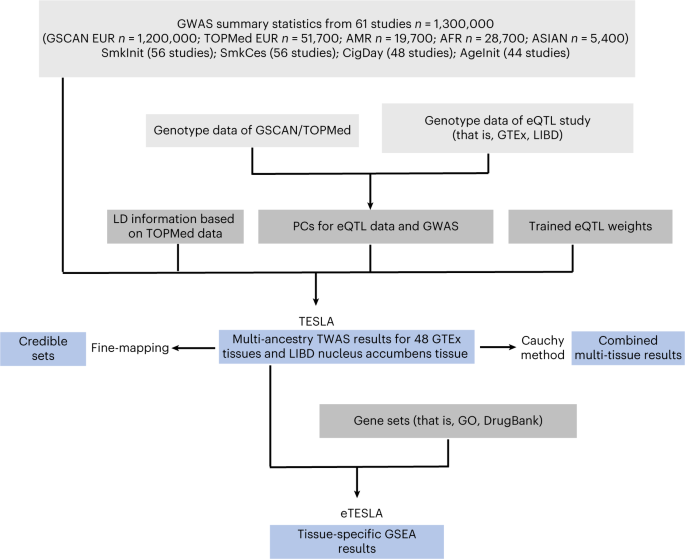カリフォルニア大学リバーサイド校のマウス研究により、父親がフタル酸エステル類に暴露されると、子孫の代謝性疾患のリスクが増加することが判明 UC Riverside mouse study finds paternal exposure to phthalates increases risk of metabolic diseases in progeny
2023-01-26 カリフォルニア大学リバーサイド校(UCR)
◆これまで、ほとんどの研究は、母親のEDC曝露が子孫の健康に及ぼす影響に焦点を当ててきました。今回、Environment International誌に掲載された研究は、父親のEDC暴露の影響に焦点を当てたものです。
◆医学部生物医学科のChangcheng Zhou教授が率いる研究チームは、フタル酸ジシクロヘキシル(DCHP)と呼ばれるフタル酸エステルへの父親の曝露が、マウスの第一世代(F1)と第二世代(F2)の子孫の代謝的健康に及ぼす影響を調査しました。フタル酸エステル類は、プラスチックの耐久性を高めるために使用される化学物質である。
◆研究者らは、父親が4週間DCHPに曝露すると、F1子孫において高いインスリン抵抗性とインスリンシグナルの障害が生じることを見いだした。また、F2でも同じ効果が見られたが、その効果は弱かった。
◆この研究における父親の暴露の場合、世代間効果とは、父親(F0世代)のDCHPへの暴露とその発育中の精子(F1世代)など、ストレス要因に直接暴露することによって起こる変化のことです。世代間効果とは、ストレス要因に直接さらされない子孫(例えばF2世代)に受け継がれる変化のことである。
◆周教授の研究チームは、精子、特に世代を超えて情報を受け継ぐ役割を担う低分子RNAに注目した。研究チームは、「PANDORA-seq法」という革新的な方法を用いて、DCHP曝露によって精子のsmall-RNAに変化が生じることを明らかにした。これらの変化は、従来のRNAシーケンス法では検出されず、PANDORA-seq法が提供する低分子RNAプロファイルの包括的な概観を欠いている。
◆この研究では、F1雄のみを用いて、被曝していない雌のマウスと交配し、F2子孫を作製した。その結果、父親がDCHPに暴露されると、F1雌雄ともに耐糖能異常などの代謝異常が引き起こされるが、これらの異常はF2雌の子供にのみ見られることがわかった。この研究では、F3子孫については調べていない。
<関連情報>
- https://news.ucr.edu/articles/2023/01/26/health-impact-chemicals-plastics-handed-down-two-generations
- https://www.sciencedirect.com/science/article/pii/S0160412023000429
父方のフタル酸塩曝露が誘発する子供の代謝異常は、マウスの精子small RNAの変化と関連している Paternal phthalate exposure-elicited offspring metabolic disorders are associated with altered sperm small RNAs in mice
Jingwei Liu,Junchao Shi,Rebecca Hernandez,Xiuchun Li,Pranav Konchadi,Yuma Miyake,Qi Chen,Tong Zhou,Changcheng Zhou
Environment International Available online: 23 January 2023
DOI:https://doi.org/10.1016/j.envint.2023.107769

Highlights:
- •Paternal exposure to DCHP induces insulin resistance in F1 offspring.
- •Paternal DCHP exposure impairs insulin signaling and alters transcriptomics of F1 mice.
- •PANDORA-seq unveils paternal DCHP exposure-elicited sperm tsRNA/rsRNA changes.
- •Paternal DCHP exposure causes transgenerational adverse effects in F2 offspring.
Abstract
Exposure to ubiquitous plastic-associated endocrine disrupting chemicals (EDCs) is associated with the increased risk of many chronic diseases. For example, phthalate exposure is associated with cardiometabolic mortality in humans, with societal costs ∼ $39 billion/year or more. We recently demonstrated that several widely used plastic-associated EDCs increase cardiometabolic disease in appropriate mouse models. In addition to affecting adult health, parental exposure to EDCs has also been shown to cause metabolic disorders, including obesity and diabetes, in the offspring. While most studies have focused on the impact of maternal EDC exposure on the offspring’s health, little is known about the effects of paternal EDC exposure. In the current study, we investigated the adverse impact of paternal exposure to a ubiquitous but understudied phthalate, dicyclohexyl Phthalate (DCHP) on the metabolic health of F1 and F2 offspring in mice. Paternal DCHP exposure led to exacerbated insulin resistance and impaired insulin signaling in F1 offspring without affecting diet-induced obesity. We previously showed that sperm small non-coding RNAs including tRNA-derived small RNAs (tsRNAs) and rRNA-derived small RNAs (rsRNAs) contribute to the intergenerational transmission of paternally acquired metabolic disorders. Using a novel PANDORA-seq, we revealed that DCHP exposure can lead to sperm tsRNA/rsRNA landscape changes that are undetected by traditional RNA-seq, which may contribute to DCHP-elicited adverse effects. Lastly, we found that paternal DCHP can also cause sex-specific transgenerational adverse effects in F2 offspring and elicited glucose intolerance in female F2 descendants. Our results suggest that exposure to endocrine disrupting phthalates may have inter- and transgenerational adverse effects on the metabolic health of their offspring. These findings may increase our understanding of the etiology of chronic human diseases originating from chemical-elicited intergenerational and transgenerational effects.


